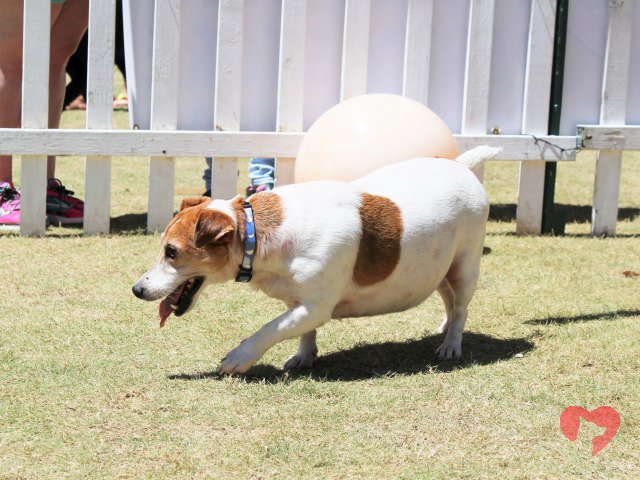We know that obesity shortens lives and impacts overall health. The trouble is when you see your dog every day it is hard to tell exactly what her perfect weight might be. Be aware that “ideal weight” for dogs is not a number on a scale because dogs come in so many shapes and sizes. Purina’s Life Span Study showed that normal weight dogs lived an extra 1.8 years longer than their overweight counterparts.
Look at your dog with a critical eye. Since his body condition score has been proven to impact his longevity, it is important that you be objective. It isn’t cruel to call your dog “fat” if it’s true and you have to know it is a problem before you can fix it. Here is how vets decide whether your dog is normal body weight:

Can You Feel His Ribs?
When you press on his sides, can you feel his ribs? You should be able to. In fact, you should be able to palpate (feel) each individual rib. If you can’t, your dog has too much of a fat covering over them. This is important and to protect your dog, this is a parameter that should be checked and addressed.
Is His Waist Visible?
Look at him from above and make sure that he has a visible waist where his body narrows behind his rib cage. When you look at him from the side, you should see a tuck for his waist from this view. Dogs with no tuck or transition from rib cage to abdomen are overweight. Your dog’s abdominal outline should be more triangular than rectangular.
Is There Excess Fat?
There should be no fat deposits over the hips and top of the tail. These areas are a secondary storage area for excess fat. Our companion pets should not need of this much extra fat stores and it is shortening their lives.

Is His Abdomen Swollen?
Examine your dog critically like a veterinarian would. If his abdomen looks swollen, he could be obese. Be aware that there are other causes of abdominal distension, however and if your dog acts tired, sick or has any unusual signs in addition to his abdomen looking distended, you do need to see your vet.
If you assess your dog’s body condition and find that your dog really does need to lose weight, you will need to make the diet plan in conjunction with your vet (much like you should consult your physician before beginning a weight loss program for yourself). As human dieters know, it is sometimes difficult to meet your nutritional needs while dieting and all diets must be in conjunction with an exercise program appropriate for your dog’s age and health considerations. Making sure that your dog is at a healthy weight is an investment in his future.
Do you have a topic that you would like explored? Please find me on Facebook and post it to my wall!
